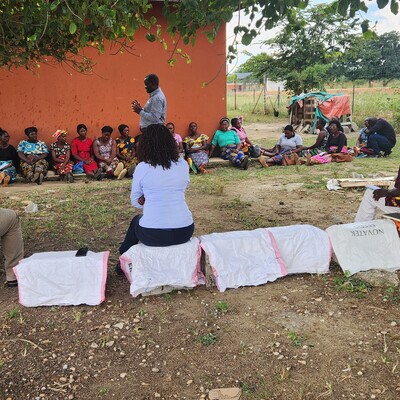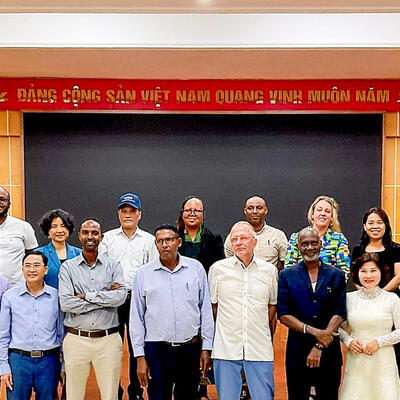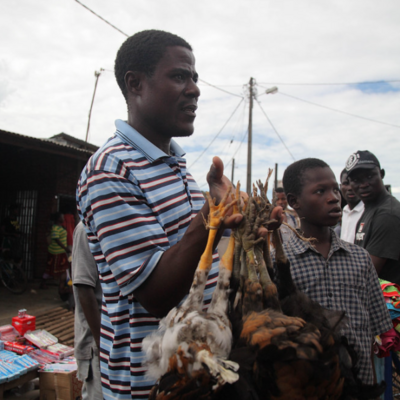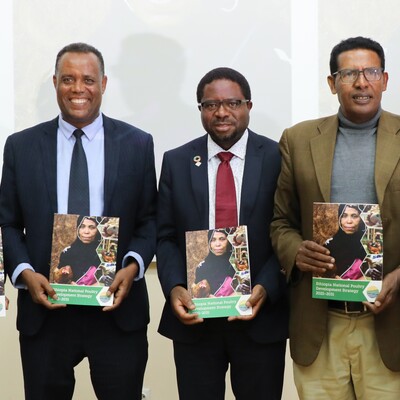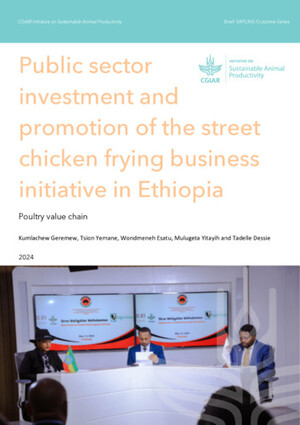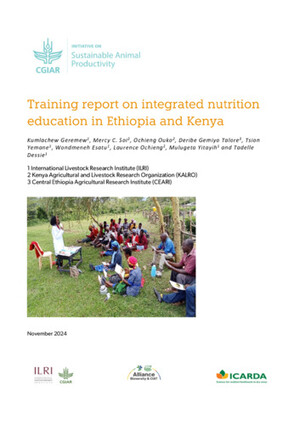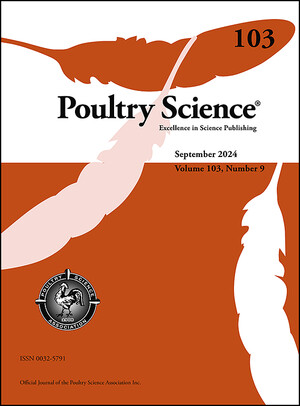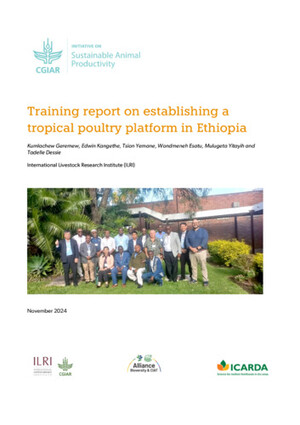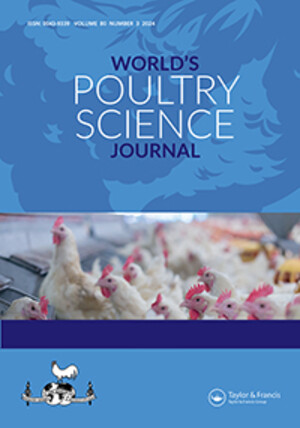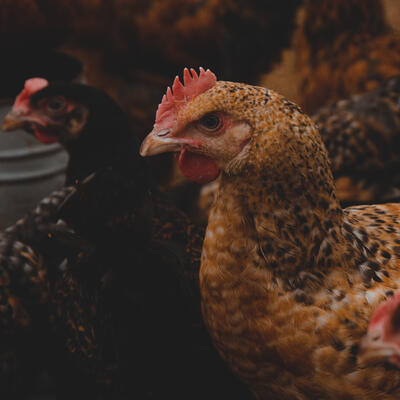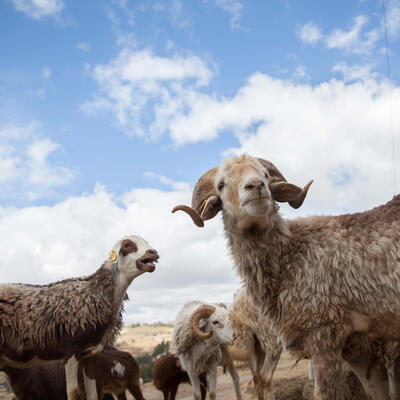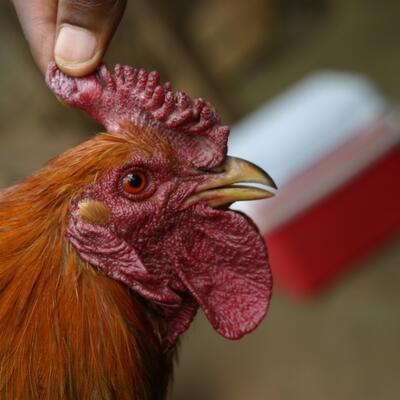
Fourth national innovation platform meeting in Nigeria lays ground for a functional forum
The overarching goal of the African Chicken Genetics Gains (ACGG) Nigeria national innovation platform is to ‘create a functional smallholder chicken value chain’. This objective has been transformed into the innovation challenge statement which is ‘how to identify, continuously improve chicken strains and establish functional value chains that facilitate participation and wealth creation by resource-poor actors, especially women in Nigeria’. Towards this end, a biannual national innovation platform (NIP) meeting was held on 20 – 21 February 2017 in Port Harcourt. Stakeholders in Nigeria’s smallholder chicken (SHC) value chain discussed ways of transforming the chicken value chain the country.
Towards this end, a biannual national innovation platform (NIP) meeting was held on 20 – 21 February 2017 in Port Harcourt. Stakeholders in Nigeria’s smallholder chicken (SHC) value chain discussed ways of transforming the chicken value chain the country.
The two-day meeting was facilitated by the Institute for People Innovation and Change in Organization, (PICO-EA) from Nairobi, Kenya. The various task forces on health, markets, finance & risk, genetics, feed and policy, presented reports of their activities since the last NIP on 17-18 October 2016.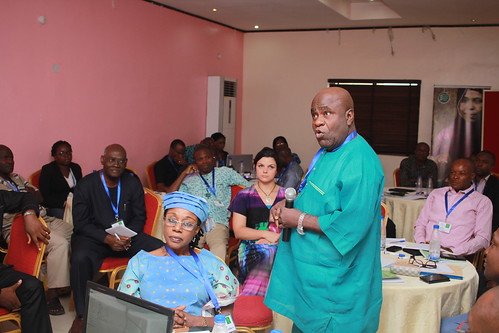
The major highlights at this edition of the NIP were:
- Smallholder chicken value chain forum
A concept note for the formation of a self-sustaining smallholder chicken value chain (SHC VC) forum was presented. The forum will be a decision-making platform for monitoring thedemand and supply of standardized and competitively priced inputs and outputs of the chicken value chain in Nigeria. It will involve all stakeholders in exchanges, while providing investment opportunities, appropriate credit facilities, high-yielding science and technology products resulting in easy production processes, quality standardization, and other activities of mutual benefits to stakeholders all along value chain.
The forum will:
- Simulate and sustain the commercial interests of stakeholders and commitment to the Nigeria SHC brand for mutual benefits by addressing problems with facts and experience.
- Provide stakeholder-generated solutions based on co-creation via interaction among stakeholders.
- Identify gaps in skill sets among stakeholders and ways of bridging them.
- Establish a viable business negotiation and agreement system among stakeholders.
- Use of a mobile application for feed formulation
The NIP also featured discussions on how to address the feed challenge of smallholder chicken farmers. To this end, there was a demonstration on the use of the FeedMix mobile phone application for estimating the nutrient content of feed formulations. The application also indicates whether or not the formulation meets the requirements of the bird type being fed. The NIP agreed to develop a similar application which can be used to estimate the nutrient composition of formulations using locally available feeds. This is because of the limited content of the locally available ingredients in the FeedMix app.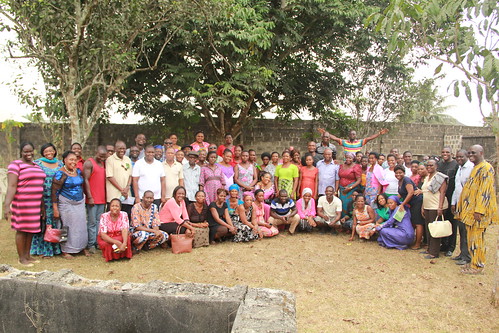
Next steps
In the coming months, members of the NIP will be working on standardization and branding of chicken products from smallholder chicken farmers, value addition and data analysis involving strain comparisons across project locations.
This fourth NIP meeting attracted participants from the private sector (Premier Mills – TOPFEEDS, Animal Care Konsult, Amo Farm Sieberer, Answer Industries, Kind Palms, Lapo Microfinance, Abundant Hope Foundation, Bdellium Consult and Olorun Osun Farm), public sector (Federal Department of Animal Husbandry Services, Federal Department of Veterinary Services, National Animal Production Research Institute and Rivers State Ministry of Agriculture), and members of the ACGG-Nigeria project team.
Community innovation platform training
Following the NIP, ACGG-Nigeria held a two-day Training of Trainers for community innovation platform (CIP) facilitators. Three field officers from each of the project zones, the national project management team and the PICO-EA team attended.
The CIP is a replica of the NIP at the village level. Its primary objective is to create a space where actors at the village level come together to identify their challenges as well as drive innovative solutions within their communities. Both the CIP and the NIP are to have a synergistic effect on the transformation of the smallholder chicken value chain in Nigeria.
The training included sessions on effective mobilization for CIPs and developing apt facilitation skills, as well as role plays. A practical demonstration of a CIP was also held at Isiokpo village in Rivers State bringing together ACGG beneficiaries and non-beneficiaries. Over 60% of the participants were women. The team later visited selected project beneficiaries.
Written by Fikayo Oyewale.





